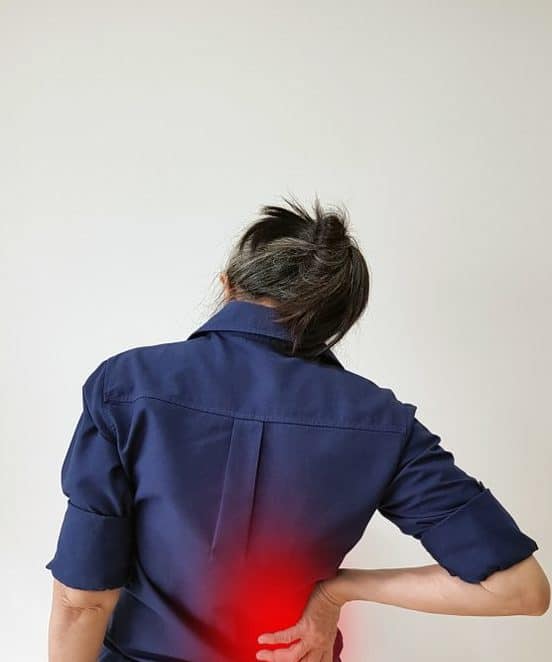Spinal Cord Accident Injuries & Treatment
At Pro-Care, we help car accident victims deal with Spinal Injuries. Spinal cord injuries occur when any impact or force bruises, partially tears, or completely tears the spinal cord. The most common causes of spinal cord injuries are falls, motor vehicle accidents, and sports injuries.
Types of Spinal Cord Injuries
There are several types of Spinal Cord Injuries. A spinal cord injury (SCI) can be complete or incomplete. If you retain some feeling (sensation) and partial ability to move below a certain point, this is called an incomplete spinal cord injury. If you lose all feeling (sensation) and ability to move below a certain point (usually the point of injury), this is called a complete spinal cord injury.
You may also hear spinal cord injuries referred to as quadriplegia and paraplegia. Quadriplegia affects all or parts of all four limbs (arms and legs) as well as your trunk and chest. Paraplegia affects all or part of your legs, trunk, and lower abdomen/pelvis. Spinal Concussion is also a spinal cord injury but is typically transient. They last a few days and result in pain, tingling, and potential neurological symptoms.
Treatment for your injury will depend on the severity and how soon you are able to seek treatment. At Pro-Care, we offer a number of solutions depending on your situation.
- Surgery can be utilized to evaluate the damage to your spinal cord and decompress any injury that could be compressing the spinal cord. During surgery other injuries can be evaluated and treated; for example, spinal fractures can be repaired and stabilized.
- Medical pain management, including the administration of steroids to reduce inflammation, can relieve external aggravations to the spinal cord.
- Immobilization and Observation gives the body time to heal and rest can sometimes relieve pressure on the spinal cord and prevent further injury.
- Rehabilitation after spinal cord injury is usually a long road. The goal is to retain function, strengthen muscles, and learn how to move and live with any lasting effects.
Related Services
Who Needs To Get Checked For Spinal Cord Injuries?
Any time you experience an acute trauma, it is important to be evaluated. Car accidents where your head or neck is jolted, jerked, or whipped are especially important to be evaluated. Falls from significant heights should also be evaluated for spinal cord injury.
If you experience any type of trauma to your neck, back, or head, it is important to pay attention to any symptoms that could indicate trauma to the spinal cord. Immediately following a spinal cord injury, you might experience swelling that delays symptom onset due to shock. The swelling can also cause symptoms that will alleviate once the swelling subsides.
These symptoms can include but are not limited to
- Loss of feeling or function in your arms or legs
- Alteration of sensation (tingling, no reaction to temperature changes, numbness)
- Loss of bowel, bladder, or sexual function
- Muscle weakness
- Difficulty breathing
- Pain

Personalized Spinal Cord Injury Management & Treatment
Our goal at Pro-Care is to create an individualized treatment plan for you and your injury to ensure the best path to achieve your treatment goals.
Spinal Cord Injury Diagnosis
When evaluating for a spinal cord injury, your doctor has several options to diagnose your injury. The methods of diagnosis are varied in order to most accurately diagnose what is going on.
- An x-ray is a form of diagnostic imaging resulting in a picture of your skeletal system. X-rays can reveal fractures, degenerative changes, or even tumors on your vertebral column.
- MRIs are performed using strong magnets and radio waves to produce an image of soft tissues. An MRI will give your doctors a clear image of the spinal cord and any associated blood clots, disc herniations, or potential masses compressing the cord.
- A CT is best described as a combination of x-ray and MRI. A CT gives a clearer image of bones seen on x-rays and even the cross sections of bone and tissue to better visualize any damage.
Your doctor will also perform neurological testing to determine if you are suffering any effects from spinal cord injuries. They will evaluate cognitive intactness, feeling in your arms and legs, and even muscle strength.
Non-Surgical Treatments for Spinal Cord Injuries
Chiropractic care is vital for spinal cord injuries. After the acute injury is treated, active rehabilitation can help maintain strength in your muscles. This includes the muscles affected by your SCI but even more the muscles that have not been impacted. Medication Therapy, such as steroids, can help alleviate swelling that may be impinging on the spinal cord. Medications can also help make you comfortable while your body recovers from trauma. Chiropractic treatment can be utilized in addition to other treatments for a spinal cord injury. An SCI is very traumatic to the entire spine and body. Chiropractic care can help alleviate associated pain and discomfort while maintaining the stability of the spine.
